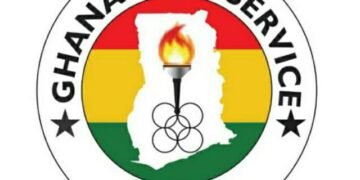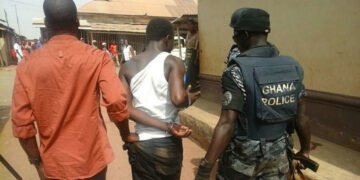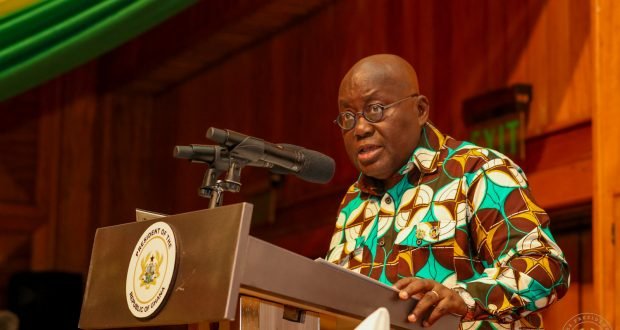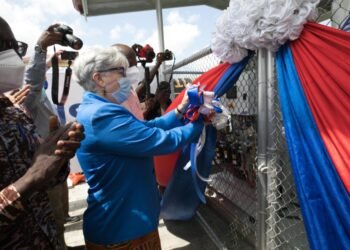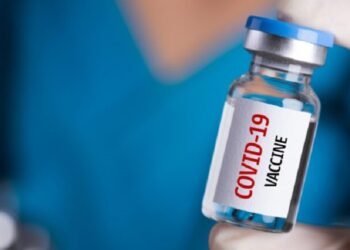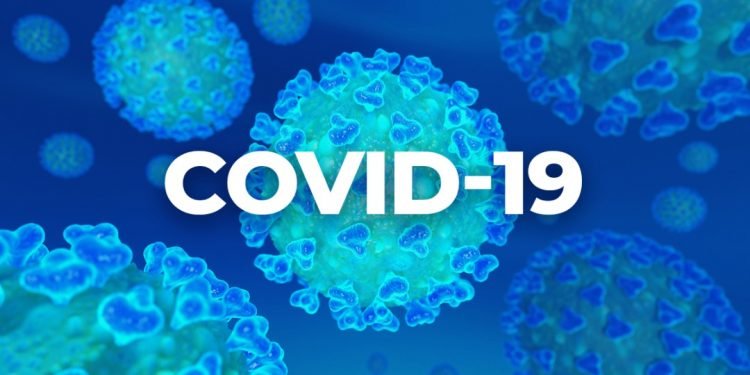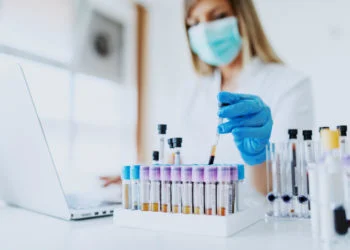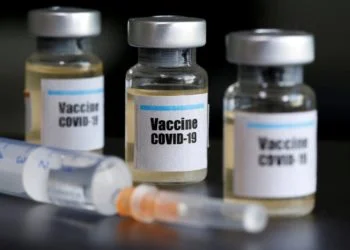
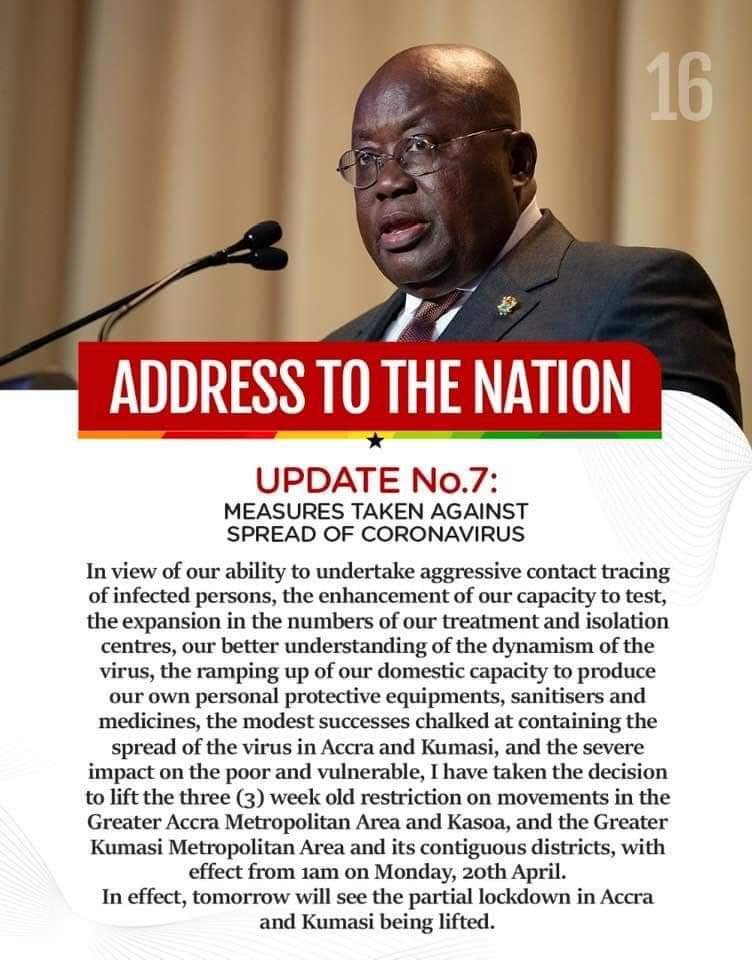
President Nana Akufo-Addo has lifted restrictions imposed on the movement of persons within some parts of the country.
According to President, the decision to enforce the 3-week lockdown was taken to give government the opportunity to try to contain the spread of the virus, scale-up effectively the tracing of persons who had come into contact with infected persons, test them for the virus, and quarantine those who tested positive and isolate them for treatment.

Addressing the nation in a televised broadcast, the President said the decision which takes effect from Monday, April 20, follows achievements made with aggressive contact tracing and enhanced testing capacities which have made it possible to contain the spread in Ghana.
Four major cities, Accra, Tema, Kumasi and Kasoa, had been placed under a three-week lockdown purposely to hold the spread of the coronavirus.
The initial two-week restrictions imposed on these areas saw a further seven days extension as the nation waited for test results from some 14,000 samples taken, the President stated in his last address to the nation.
He explained noted that, with Ghana having received the test results of some 68,591 contacts, and with the majority of tests being undertaken over the last 3 weeks, 1,042 persons, i.e. 1.5%, have been confirmed as positive, with 67,549, i.e. 98.5%, testing negative.
Additionally, 99 persons have recovered and have been discharged, with 930 persons, who have been isolated responding to treatment either in their homes or in treatment facilities.

“The main reason our country has seen an increase in the number of confirmed cases over the last three weeks is because of the decision we took aggressively to trace and test contacts of infected persons.
“This has enabled us to identify and isolate infected persons, protect the population from further infections, and contain better the spread of the virus,” he said.
The President continued, “Indeed, Ghana is the only other country in Africa to have conducted more than 60,000 tests, and we are ranked number one in Africa in administering of tests per million people”.
Thus, President Akufo-Addo explained that “in view of our ability to undertake aggressive contact tracing of infected persons, the enhancement of our capacity to test, the expansion in the numbers of our treatment and isolation centres, our better understanding of the dynamism of the virus, the ramping up of our domestic capacity to produce our own personal protective equipment, sanitisers and medicines, the modest successes chalked at containing the spread of the virus in Accra and Kumasi, and the severe impact on the poor and vulnerable, I have taken the decision to lift the three-week-old restriction on movements in the Greater Accra Metropolitan Area and Kasoa, and the Greater Kumasi Metropolitan Area and its contiguous districts, with effect from 1 am on Monday, 20th April.”

In effect, the President stressed that Monday, April 20, “will see the partial lockdown in Accra and Kumasi being lifted.”
Although the lifting of the restrictions may come as a reprieve to the many whose livelihoods may have been hit hard following the imposition, access to some major sectors remains restricted.
The country’s borders remain closed.
Also, the ban on social gatherings, including religious gatherings as well as the strict adherence social distancing protocol, remain in place, the President said.



